
Exile becomes a double loss: loss of origin and reality, tormented by the never-ending desire for return, an unrealizable return…
Diana Abbani
In her essay “Voyage, War and Exile,” the Lebanese American poet and visual artist, Etel Adnan, described her experience before leaving Beirut at the outbreak of the 1975 civil war as an exile. She was not the one leaving Beirut, she asserted, it was Beirut leaving her: “What is exile, she wrote, if not the violent and involuntary loss of all the living symbols of one’s identity?”[1]
Until today, many in the Arabic-speaking region find themselves, like Etel Adnan, exiled in their homeland. This exile is “total and absolute,” as she marked. Being exiled in your own homeland is “the most desperate of all forms of exile. It is living in hell,” or as the Lebanese rapper Bu Nasser Touffar sings in his song Hexaphobia, “Alf ghorba, w la amout bi blade marra [A thousands times in exile, and not one minute dying in my country].” But unlike Etel Adnan, many feel today that they are not witnessing the meaning of “Paradise Lost.” Their home was no longer considered a paradise, and this for a very long time.
Confronted by wars, repression and authoritarian regimes, many young coming from the Arab world have had to leave their homeland in the last ten years, and seek refuge in Europe. When German Chancellor Angela Merkel offered temporary residency to asylum seekers in 2015, Berlin became a major destination. This city has a long history in attracting foreign intellectuals and artists looking for an affordable and culturally open place. Profiting from the presence of earlier Arab communities that immigrated since the eighties, it is turning into an Arab exile capital and an Arab cultural hub, particularly due to the institutional and communal supports given to intellectuals and artists.

A Taste of Home
Born and raised in the Arab-speaking world and amidst its difficulties, Berlin’s new comers brought the problems, the music, the tastes and the discourses circulating across the Middle East and North Africa. They found themselves in a new alienation. Their growing presence in Berlin is slowly shaping a musical scene that reflects their needs and aspirations. This emergent musical and cultural scene is still on the margins of Berlin’s mainstream German life. It isn’t always managing to attract members of Berlin’s old Arab community. Like the emergent Arab intellectual community in the city, it still needs to shape its identity to become an “Arab exiled body” as the Egyptian sociologist Amro Ali described it.[2] But it is turning into an important place for new comers to express their feelings of pain and exile, and a means to maintain a common sense of identity and belonging.
Traditional and modern Arab musicians, classical artists and those into hip-hop, metal, electronics and jazz are animating jam sessions, musical performances and dance parties in the city. Some of the singers who visited the city are among the most popular artists on the Arab independent scene like Bu Kolthoum, Cairokee, Lekhfa, Massar Egbari, Mashrou3 Leila, El Rass, 47 Soul… The affordable city also attracted various established artists looking for an easier access to the European musical scene from Berlin, like the Palestinian singer Rasha Nahhas, the Lebanese jazz player Tarek Yamani, or the Lebanese video, sound and visual artist Raed Yassin. Others artists had to leave their country and eventually found themselves in Berlin, like the Syrian rappers Enana, Abu Hajar and his band Mazzaj Rap or the Syrian trumpet player Milad Khawam, among others. These young artists are trying to create their own space here. Although the city offers them a place to meet and connect with various artists from different places, their work is still more individual than collective. They are looking for their voice in the city and in relation to the places they left. Their musical productions are in the midst of finding its language, identity and definition. But they all have to navigate Germany’s political and social limits, such as the Eurocentric view on the region, racism, Islamophobia and Germany’s stance on Israel-Palestine. (See Abir Kopty’s Unapologetic Palestinians, Reactionary Germans.)
At the same time, many musical spaces and events are becoming meeting points for the newcomers and marginalized groups, like the electronic Hafla/Party “Arabs do it better,” the Arab Songs Jam, the Arabic Music Institute Berlin, the Berlin-based collective Queer Arab Barty, Oyoun cultural center, or Al.Berlin bar and café and its music festivals. Deeply connected to the Arab world in its artists, subjects and music, this musical scene is creating a feeling of home, like Wael Alkak’s concert in Berlin.
Finding Home in Exile
On a cold Berliner October night, people coming from different places gathered last autumn at the Festsaal venue in Kreuzberg to attend the Al.Festival. Many refugees and exiled sang and danced over the music of various Arab artists, among them the Syrian musician based in Paris, Wael Alkak. During that night an entanglement engaged the performer with the audience. Wael Alkak’s re-appropriation of Syrian revolution songs and his multi-layered and emotionally charged electronic music marked the audience deeply, bringing a familiar language into their cold exiled nights.[3] It broke their escape from the past and their feeling of alienation bringing them back to the heart of their turmoil. Dancing to the rhythm of the drum and the flute accompanied by the rabab, the lute and the electronic, the audience swayed as they sang, “‘Ayni ‘Aliha [My Eyes on Her]”, “Janna Janna [Paradise Paradise]” and “‘Endak Bahriyya [You Have a Marine].” They forget for a while where they were and what brought them to this city.
Wael Alkak featured its musical project Neshama, which is inspired by folk Syrian songs and revolutionary songs popular at the outbreak of the Syrian revolution. During that time of peaceful demonstrations, popular musicians composed new songs and sang with the revolutionaries revolutionary slogans that were combined with well-known folk tunes.
Listening to Wael Alkak’s songs in Berlin confronted the audience with different feelings of sadness, hope and love around his music: on the one hand, sadness over the revolution’s founding moments and the beginning of the protests; on the other, a general sadness over the outcome of the revolution and war; and finally sadness over the reality of exile and asylum while leaving the country, the family and the friends. These feelings were combined to the joy of taking part in this collective moment. Alkak’s performance formed a place where all these different narratives intertwined and juxtaposed creating shifting realities. The solitary individual voices and the music of revolution and lamentation crafted new, yet familiar, sounds. Transcending barriers of words and borders, they captivated the audience, and engaged the listeners in a dialogue with the city, the future’s dreams, the afflicted country, the longing for it and the grief over losing it.
This created a dynamic interaction between the singer, his songs and his audience by engaging the latter in an expression of emotional conflict. In this turmoil of music, passion, and grievances, a safe space was drawn for a few moments. Although the songs spoke the language of the Syrian revolution that developed in a specific historical and political context, they were remarkably similar in their emotional expression of personal, political, and social struggles in various Arab-speaking regions. This made it easy for the non-Syrian audience in the city to engage with it. The lament became both a personal and a collective experience, expressing a common grief, which has no specific homeland or identity, an elegy that does not seek to explain or make sense of the ordeal. Instead, it provides a way to deal with it and the pain it created by talking about it and about people’s personal stories in a repeated attempt to move past their despair and defeat.
Music as a Cultural Reminder
In a context of revolutions, pandemic, political failures, wars, exile and the search for a refuge and societal engagement, those who left their home country are in a constant search for a musical language and sound that speak and talk to their identity, home and aspirations. Music has always been used as a cultural reminder through which exiles try to transmit the voices of the past, the voices of home through nostalgia and mourning. For some, it can also be a way for cultural and ethnic differentiation (from the places they are living in) and a continuity with the idealized past and homeland.
In her work on nostalgia, the American anthropologist Kathleen Stewart writes that, in today’s world where neocolonialism, post-modernity, and transnational capital push more people and culture to move and circulate between places, nostalgia as a feature of exile has become a “cultural practice” and a “mode of representation”[4]. The notion of time has changed and we experience the present as a loss, as a phenomenon that has no origin or reality. Exile becomes a double loss: loss of origin and reality, tormented by the never-ending desire for return, an unrealizable return…
Finding home through music is neither new nor unique. The songs of Fairuz and the Rahbani brothers, Wadi al-Safi, Sabah Fakhri and others were reclaimed by various Arabs exiled during the 20th century, particularly nationalist and patriotic songs. Most of these songs focused on nostalgic images of the nation and the country’s nature, its mountains, land, sea, or its historical monuments that gained a national status. Love and separation in songs became universal love, one that can be understood as longing to the lost land, the home, the family and the origins. These nostalgic images connected the exiled to their childhood, past, and to a certain imagined “golden age” of the home “nation.” Most of the discourse around exile in songs was thus framed as a state of faithfulness to the true spirit of the nation.
Today also, nostalgia is staged metaphorically and musically in a lot of music produced in exile, or captured by the exiled. For example, the Berlin-based orchestra of classical and traditional Syrian music, the Ornina Syrian Orchestra, presents a music that speaks of loss and separation, and re-create images of home. This nostalgic past is ideological, as Stewart emphasizes, an “imaginary geography” — a construction created by exilic narratives. The nostalgic images of the past have a dual role: to authenticate a past and simultaneously to discredit the present, a present full of losses, mourning, powerlessness and defeats.
There is a growing desire to be liberated from the dominant narratives, specifically its control over writing the present, the past and the future.
A Whiff of Hope in Exile
But other images in today’s Arab music productions are also engaging with Arab exiles here or there. These images occur through a critique of the repression and the current state in home countries, a depiction of people’s daily struggles and the exile experience inside or outside their home country. Giving voice to the marginalized, these songs are mostly hip-hop and rap songs created by artists still living in home countries or left it recently, like El Rass, Bu Kolthoum, Bu Nasser Touffar, El Far3i or Wael Alkak among others… Through a recollection of the past or the critique of the present, their songs tend to break with the official narratives, particularly the one linked to the National State building and the mid twentieth century’s “socialism.” Among the triumph of authoritarian regimes and liberal politics, and in the midst of wars and instabilities devastating the region over the last couple of years, they hope of finding new stories and constructing new political possibilities. They thus resonate with a large group of newly exiled youth and present a new way of experiencing the city, exile and home.
These music productions aim to look for new existences for the “individual” who was often marginalized in a collective “us,” to create a space for a beautiful and better life after all the endured pains and losses. A space that can recollect the past and today’s defeats, talks about it, cries over it, or smiles to it, just like in Wael Alkak’s concert. Many of these songs reflect the magnitude of the changes that occurred in the Arab world when home became our exile.
The imagined “Arab homeland,” which was depicted in the mid 20th century’s songs and centered on the nation-state and Arabism, crushed its peoples. It is no longer desirable in their imagination. This ideal image has been shattered in so many places, as the repression increased over the cities, their people, and the various minorities. The calls of cities that we heard on the streets of Damascus, Baghdad or even Beirut expressed a growing desire for new encounters that do not come from above, nor are drawn by authoritarian regimes, but are woven from below through personal and intimate relationships between cities and their inhabitants.
There is a growing desire to be liberated from the dominant narratives, specifically its control over writing the present, the past and the future. Due to their portability, these songs and the meanings they carry become a means of lamentation and weeping over the past and current defeat accompanied by a whiff of hope. They portray the images and the stories of the people and their desire to take control over their past, present and future. It can thus be read as a moment that provides an alternative window for reading the spirit of revolutions and hopes in exile as expressed in popular music, whether in home countries or elsewhere.
Echoes of Home in Exile
As many have turned today into Berlin, the echoes of these songs still resonate with them. Being exiled first in their own countries then in Berlin becomes an additional mourning added to the historical accumulation of sorrow and pain. Listening, playing and making these songs in exile become a way to share sorrow, resistance and dreams. They offer shared experiences of emotions that work as a politics of belonging by creating a sense of belonging and a shared history. Music turns into a tool to re-appropriate the past and the present. It recollects its pain, to transforms its course, abandoning the Arab national homeland slowly and reconnecting with a better home formed around its cities and their peoples that have been paralyzed by previous and present regimes.
Faced by the challenges of exile, some may find their place in nostalgia and the romantic images of the country, its history and its people, as well as in love and separation stories of folk songs. Others would turn towards new music and lyrics that reconnect them with their reality and their world here and there. In both cases, the listeners try through music to look at the ruins of the past and the fires that are still burning in their country, to save what can be saved and leave the rest. Music becomes a means to connect with the country, to search for stories in which one can self-identify or to build through it new places to call home.
From this perspective, I read my constant quest to recollect the past. After spending the last ten years moving from one place to another between Europe and the Middle East, I also find myself today in Berlin. As I contemplate my work on the musical life of Beirut and the Levant region in the early 20th century and revisit the so-called “Lebanese golden Age and jet set,” I ask myself how to talk about history, entertainment and music of home in our current world filled with displacement, movements, war and losses? How to read and write the history and the present of our cities through their cultural expression and entertainment world without falling into the trap of nostalgia and the lost golden age? And how can songs voice our past, our home and our exile, after being defeated and exiled in our own homeland?
For years now, I have been roaming in search of stories of Lebanon’s pre-1950s musical life, which was marginalized from official narratives; stories of women artists who animated the region’s cabarets but were eventually silenced over the years; and stories of forgotten places. I have never been in these lost cabarets — or as I like to call them “my cabarets.” Yet, I know all their details. I never saw any picture from the inside. But the smell of cigars, the tinkling noise of glasses, the laughter of their customers, and the loneliness of their singers haunt my cold Berlin nights.
As I gradually learned to become a person who excavates the past in order to understand the present, I dug deep in different archives and places in the hope of understanding the life, the hopes and the imaginaries of ordinary people and their history from below. I recollect images of “my cabarets” and their songs before the creation of the Lebanese state and its “Lebanese music”… I follow their traces like a crazy lunatic possessed by the archive fever in the hope of getting a glimpse of their history, music, secrets, stories they shaped and witnessed, smell, noise and fears….
As I dive into my work on this past musical life, while living in Berlin, the city of Weimar’s cabarets, the city of Arab exile today, a city where I made new families and a new home, I turn to a music that reconnects me with the past, the present, and the accumulated sorrows of our recent history of eternal collapses. I swing between the history I grasp from early 20th century music records and the shared experiences I collect from contemporary songs. I look at “my cabarets” beyond nostalgia and the ideal image of “Lebanese myths and golden age” to recollect stories from the past, stories of my past, stories of my home, stories of forgotten people and places…to reclaim a stolen past and reappropriate the present.
Notes
[1] Adnan, Etel, ‘Voyage, War and Exile’, Al-‘Arabiyya, Vol. 28 (1995): 5-16.
[2] Ali, Amro, ‘On the need to shape the Arab exile body in Berlin’, Disorient, 2019.
[3] A longer Arabic version of my review of Wael Alkak’s concert in Berlin was first published in Raseef22 in an article entitled ‘Janna Janna” and Wael AlKak’s concert in Berlin… Lamenting in songs as an act of resistance’, Raseef22, 28 October 2021.
[4] Stewart, Kathleen, ‘Nostalgia- A Polemic’, Cultural Anthropology, 3.3 (August 1988): 227-41.




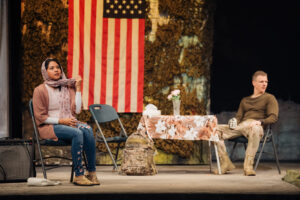
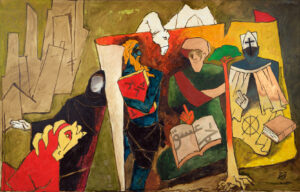


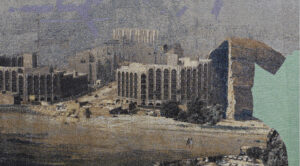
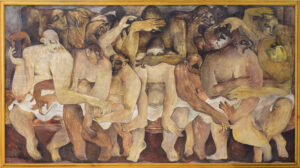

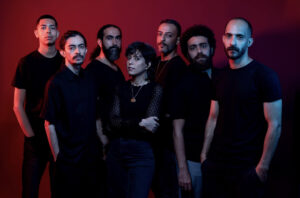







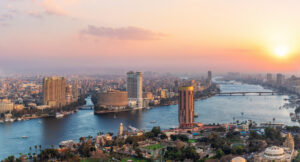
![Ali Cherri’s show at Marseille’s [mac] Is Watching You](https://themarkaz.org/wp-content/uploads/2025/09/Ali-Cherri-22Les-Veilleurs22-at-the-mac-Musee-dart-contemporain-de-Marseille-photo-Gregoire-Edouard-Ville-de-Marseille-300x200.jpg)




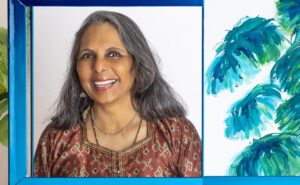






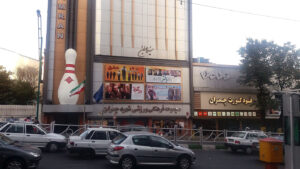

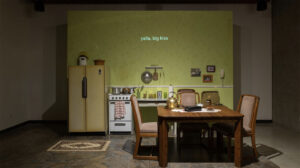


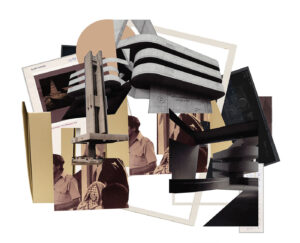

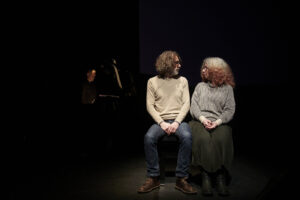
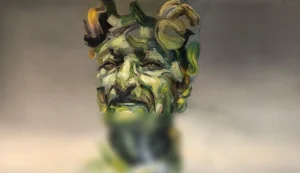






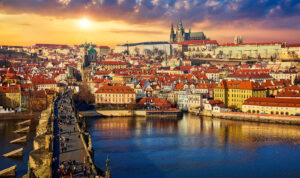








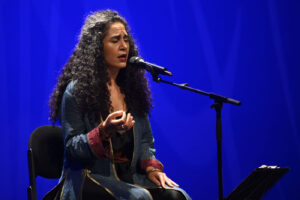







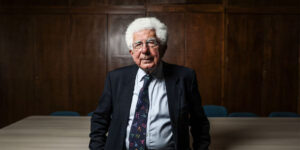








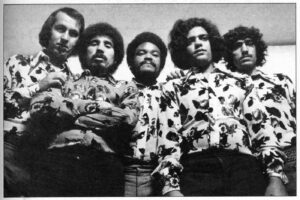

























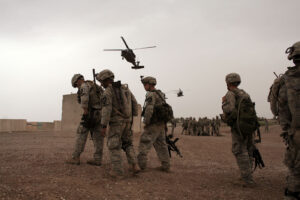





























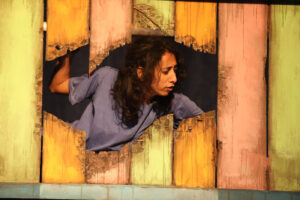



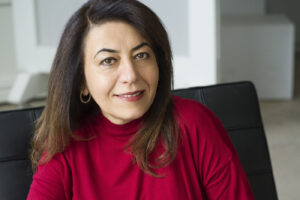



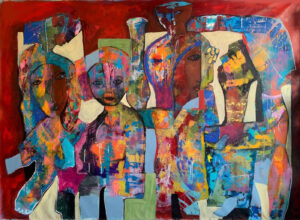


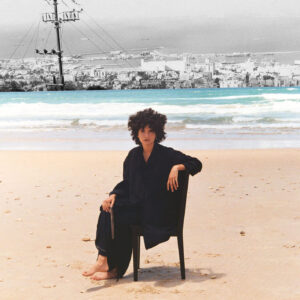























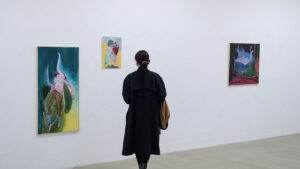



















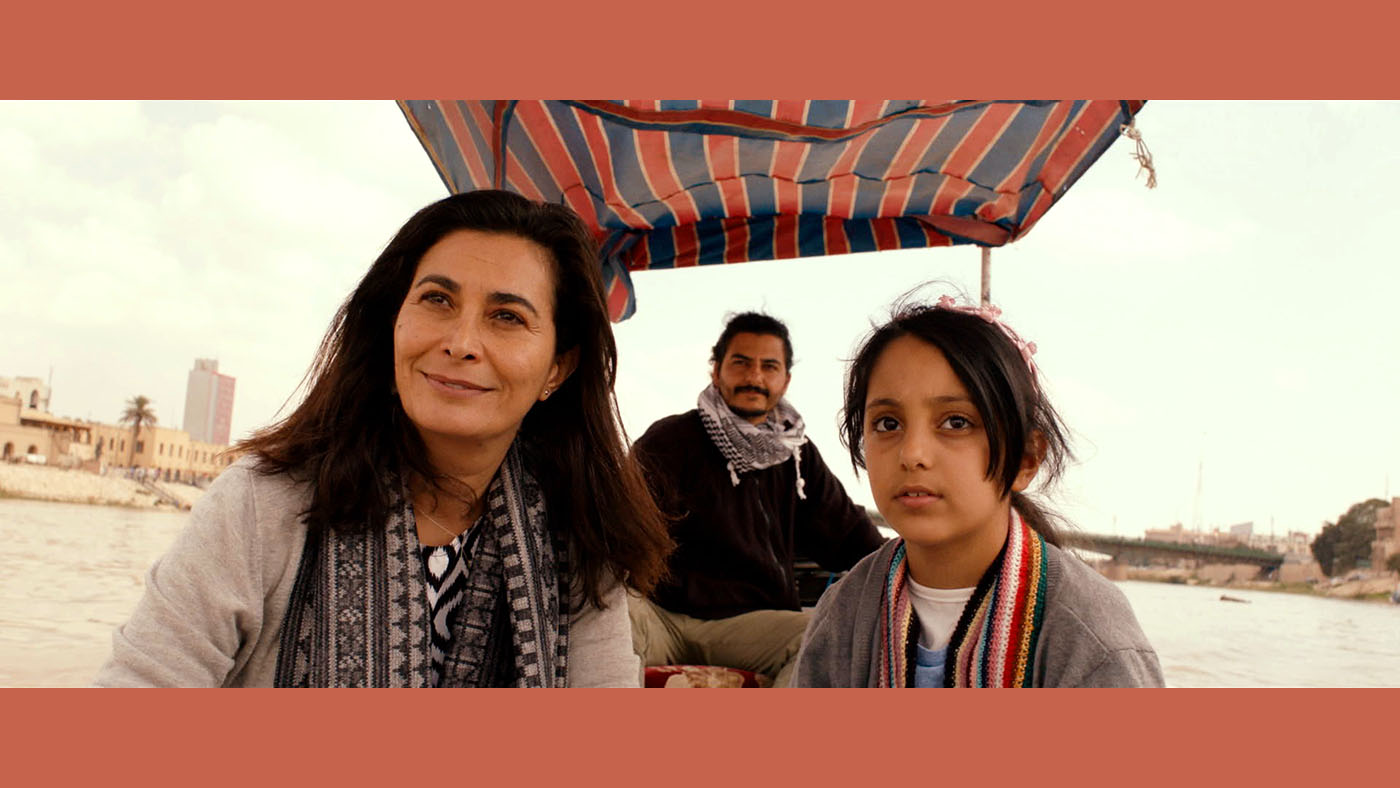
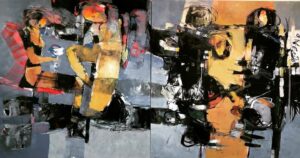

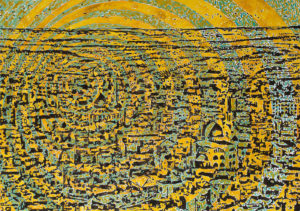











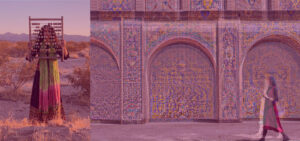
































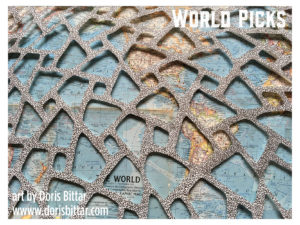
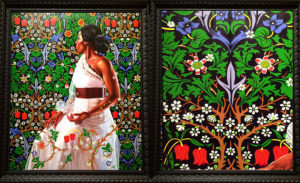

















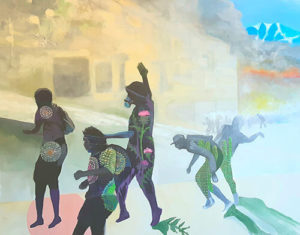


Pingback: Arab Engagement at the World Festival of Youth and Students in the USSR in 1957 – A Conversation with Elizabeth Bishop – TRAFO – Blog for Transregional Research